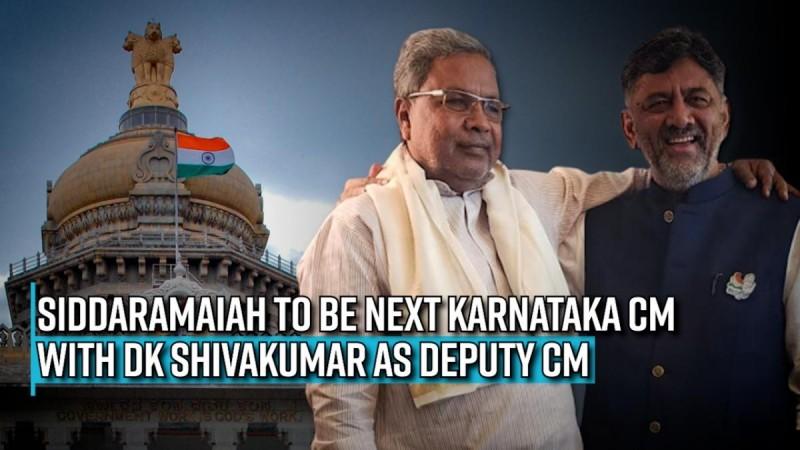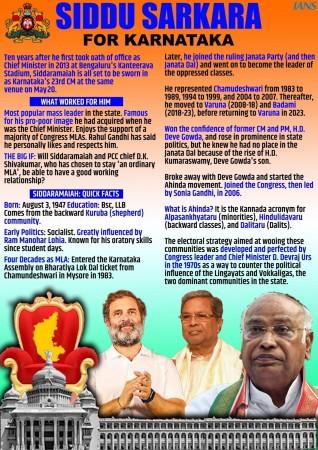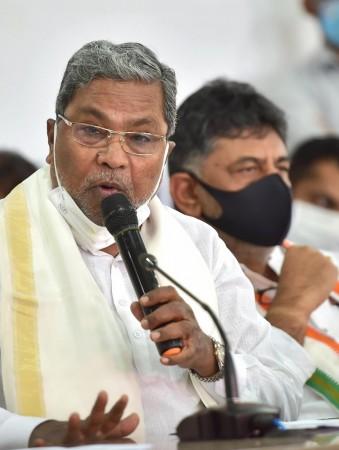Siddaramaiah, an unwavering champion of socialism, is poised to embark on his second term as the 24th Chief Minister of Karnataka, an impressive feat indeed.
Originating from a modest background, Siddaramaiah ascended to the highest echelons of power by confronting the entrenched feudal and caste-based forces that hindered progress.
As an immensely popular leader among the masses, he commands the support of the majority of MLAs within the Karnataka unit of the Congress party. It is worth noting that Rahul Gandhi himself has expressed personal admiration and respect for Siddaramaiah.

In the realm of Indian politics, Siddaramaiah stands out as one of the few politicians who fearlessly takes on formidable figures such as Prime Minister Narendra Modi, Amit Shah, and the RSS. His incisive criticisms of saffron politics have elevated his stature both within the Congress party and among the general populace.
Born on August 12, 1948, in Siddarama Hundi, a remote village in Varuna Hobli of Mysuru district, the seventy-five-year-old Siddaramaiah hails from a humble farming Kuruba (shepherd) community. He pursued a BSc degree at Yuvaraja College before undertaking LLB studies at Mysore University, eventually practicing law for a period of time.
During his time as a student, Siddaramaiah gained a reputation as an articulate and persuasive speaker, renowned for his oratory prowess. He was deeply influenced by the socialist ideology espoused by Dr. Ram Manohar Lohia.

In 1983, Siddaramaiah entered the seventh Karnataka Legislative Assembly, representing the Bharatiya Lok Dal party from the Chamundeshwari constituency. Subsequently, he joined the ruling Janata Dal party and assumed the role of the first President of the Kannada Watchdog Committee, responsible for overseeing the implementation of Kannada as an official language.
Dedicated to the enrichment of Kannada language and culture in the state, Siddaramaiah later served as the Minister of State for Sericulture, playing a pivotal role in the comprehensive development of the Sericulture Department and Silk Industry in Karnataka. He emerged as a prominent advocate for the rights of marginalized communities.

Siddaramaiah earned the trust of former Prime Minister H.D. Deve Gowda, propelling him into the limelight as one of the state's top leaders. Eventually, he broke away from Deve Gowda, challenging him and founding the Ahinda (Alpasankhyak, backwards, and Dalits) movement.
In 2006, Siddaramaiah joined the Congress party, subsequently assuming the role of the 22nd Chief Minister of Karnataka from 2013 to 2018. Throughout his political career, he served as a Member of the Legislative Assembly (MLA) from various constituencies, including Chamundeshwari, Varuna, and Badami, spanning multiple terms.
Prior to his tenure as Chief Minister, Siddaramaiah also held the position of Deputy Chief Minister from 1996 to 1999 in the Janata Dal government led by the late J.H. Patel. Additionally, he served as Deputy Chief Minister from 2004 to 2005 in the Congress-JD(S) coalition government led by Dharam Singh.
In his role as the Leader of the Opposition from 2009 to 2013 and again from 2019 to 2023, Siddaramaiah demonstrated his unwavering dedication to public service. Notably, he also served as the Minister for Animal Husbandry and Veterinary Services.
During his tenure as Deputy Chief Minister, Siddaramaiah held the Finance and Excise portfolios, effectively replenishing the state government's coffers and clearing the debts.








